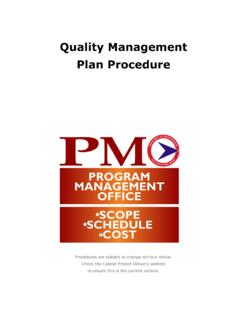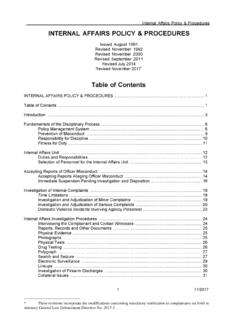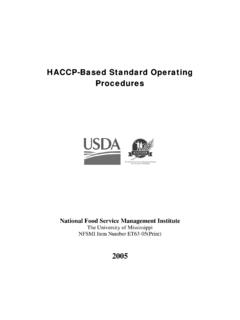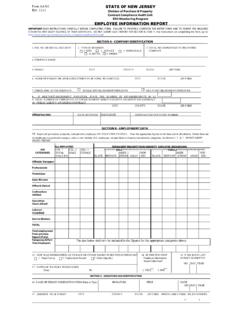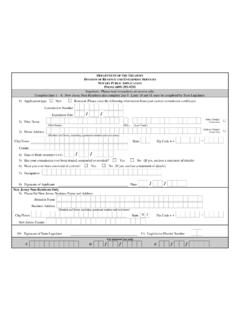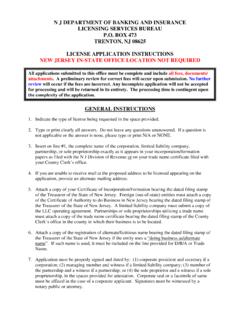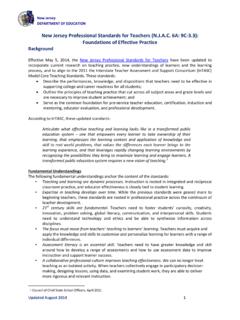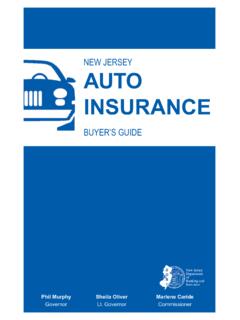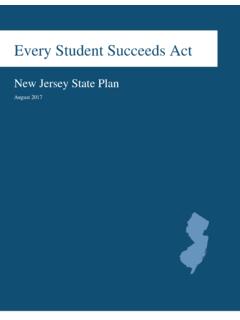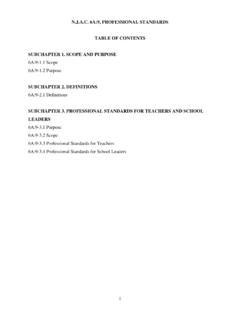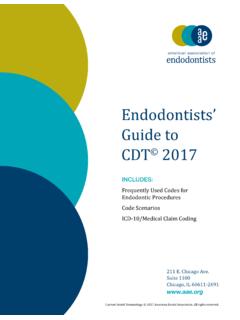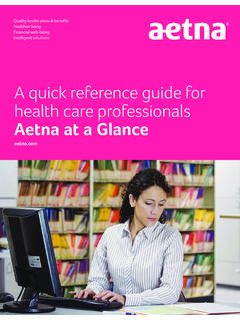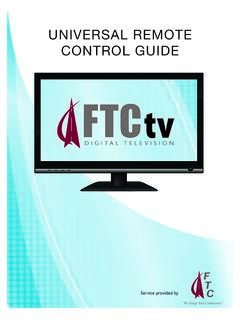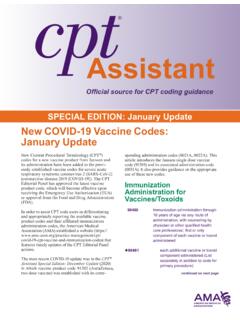Transcription of DCA ALTERNATIVE DISPUTE RESOLUTION GUIDE
1 Dear Homeowner: You recently requested assistance regarding your association. The Association Regulation Unit in the Department of Community Affairs enforces provisions of the New Jersey Condominium Act and the Planned Real Estate Development Full Disclosure Act pertaining to the obligations of an association comprised of residential owners in the following three areas: that associations adopt and properly administer alternate DISPUTE RESOLUTION procedures (ADR); comply with open public meeting requirements; and provide owners access to financial records at reasonable times. In order to more fully inform you regarding these areas, included are information sheets for each subject matter. Please note that the Department of Community Affairs does not have the statutory authority to take actions such as investigating alleged wrongdoings of board members or employees, removing board members from office, ordering board members or employees to comply with governing documents or to take or rescind specific actions.
2 Similarly, we cannot order revisions to financial practices or operating procedures , conduct audits or review elections. Owners are empowered to correct such matters through ADR or litigation as well as by petitioning the board or electing new board members. If you wish to make a formal complaint that your association is not in compliance with its obligations as described in this material, please complete the enclosed Common Interest Community Association Complaint form and return it, along with the appropriate supporting documentation, to the address on the complaint form. We trust the information supplied will GUIDE you accordingly. Association Regulation Unit Planned Real Estate Development Enclosures New Jersey is an Equal Opportunity Employer Printed on Recycled paper and Recyclable DCA ALTERNATIVE DISPUTE RESOLUTION GUIDE *. For owners in common interest communities Both the New Jersey Condominium Act, 46:8B-1 et seq., and the Planned Real Estate Development Full Disclosure Act (PREDFDA), 45:22A-21 et seq.
3 , require associations to provide a fair and efficient ALTERNATIVE to litigation for unit owners to resolve "housing related" (meaning not personal but related directly to association living) disputes between one another or with the association. While formally called ALTERNATIVE DISPUTE RESOLUTION , it is commonly referred to as ADR. The overwhelming majority of ADR matters are between owners and the board (technically the association) but it is applicable to association related disputes between owners. Unlike the board, which must participate if an ADR is requested for one of its actions or inactions, a unit owner cannot compel another unit owner to participate in an ADR proceeding. This does not mean an association cannot still provide an ADR for the one owner to explain his or her concern. If the ADR request concerns another's owner's action or inaction that violates a governing document or rule, the board should take action and advise the requesting owner that he or she may be requested to serve as a witness.
4 Section 15(f) of the Condominium Act requires condominium associations to provide written notice of the availability of ADR as a condition of issuing a fine. Although there is no specific requirement for this in the PREDFDA there is also no statutory right for non- condominium associations to issue fines. Because courts look to the Condominium Act for guidance even when dealing with non-condominiums, a homeowner's or a cooperative association that issues a fine, should also provide notice of a right to ADR. It is important to note that even if your association was formed prior to passage of either the Condominium Act (1969) or the PREDFDA (1977) New Jersey courts support an owner's right to ADR. ADR procedures can be either mediation (attempting to work the matter out to mutual agreement) or arbitration (a more formal proceeding ending with a decision). An arbitration proceeding operates much like a trial in which witnesses testify and evidence is presented.
5 Although there are individuals qualified as mediators and arbitrators, there is no requirement for any training or certification for one to serve as either a mediator or arbitrator in association ADR proceedings. Thus, the ADR can be conducted by other association owners. Whoever conducts the proceeding must not be biased or partial as measured by an objective standard. Because the board is the authority which must appoint the ADR provider, mere appointment is not evidence of partiality. *Except as to matters specifically cited as being the law , this handout should not be referred to as the law . ADR Page 2. ADR is intended as an attempt to resolve disputes and is not necessarily binding on boards. Both owners and boards have the right to proceed in court in response to an unsatisfactory ADR. outcome. This proceeding will be conducted as a new matter and not as an appeal. If the board fails to cooperate with a recommendation or arbitration decision against it, you must initiate a proceeding in court.
6 In addition to not creating a record for an appeal, ADR is not a means to secure an order to stop a board from taking action or to force a board to act. These can only be secured through appropriate court proceedings. Similarly, ADR is not the means to obtain monetary damages against the association. Although ADR is applied broadly, in recognition of the intent that it be a means to avoid litigation, matters within a board's legitimate discretion are not subject to ADR because a court will not substitute its judgment in such matters. Owners can address disagreement on matters in which boards properly exercise discretion through the democratic process (petitions, elections, etc. which convey the will of the community). These issues are distinguishable from violations of governing documents or other legal requirements which can be reviewed objectively and on which a court can rule. In ADR, as in a court, you should be prepared to refer to specific laws, portions of the governing documents or rules which you believe the board violated There is no standard ADR procedure.
7 Each association is authorized to design the ADR. procedure which it feels best satisfies the needs of its owners. This agency has a sample procedure available to boards upon request. If an association procedure designates an outside mediators or arbitrators, it may simply refer the owner to the providers for their specific procedures . The one fundamental rule is that neither the board nor any of its agents or employees can be the ADR. provider. Thus, neither the board nor any member can sit as or with the ADR panel. However, board members, agents or representatives can appear in the proceeding and present the board's position. While either party may proceed in court after an ADR, the board cannot appeal an ADR outcome to itself. Note that there is a State Office of DISPUTE RESOLUTION in Newark which can provide ADR if requested by the association. While owners can suggest options, it is the association Board which has the authority and responsibility to determine the association's ADR procedure.
8 The New Jersey Department of Community Affairs, acting through the Association Regulation Unit has authority to require common interest communities to adopt an ADR procedure and to provide it when applicable. The agency does not provide the ADR nor can it address the substance of the DISPUTE , modify outcomes or hear appeals. Please note, the law does ADR P3. not require that associations file their ADR procedures with the agency and there is no requirement to receive agency approval before instituting a procedure. However, if an owner believes the association's ADR procedure violates the statutory requirements, the agency will review it. Because ADR is intended to be an informal proceeding, it is not necessary to secure legal representation. However, if you choose, you may be represented by a lawyer. If you choose to be represented by a lawyer, you are responsible for the cost of the representation. You can also choose someone to accompany you to the proceeding as well as bringing witnesses.
9 In condominiums, any costs in providing ADR are common expenses pursuant to Section 14 of the Condominium Act. This is only applicable to the required ADR. If the association's ADR procedure provides for a second option, such as arbitration following mediation, it can charge a fee for that option. Common expenses are ones shared by all owners and not just split between the parties to the ADR. In other types of associations, there may be charges on the requesting party to cover or contribute to the costs of the required ADR. In such cases, there is no set limit on these charges. An owner who believes the charge is excessive can proceed in court. Associations are required to have and provide an ADR procedure, if requested, as an opportunity to resolve disputes but owners are not mandated to pursue it prior to proceeding in court. Be advised that the court may send your matter back to the association for ADR if it believes there is a chance ADR will be helpful.
10 The law strongly favors having ADR available to attempt to resolve matters without the necessity of a court action and it is broadly construed to apply to virtually all association related issues. Those who believe they have discovered fraud, theft or other criminal conduct by a board and believe they have concrete evidence should bring the matter to the attention of the county prosecutor or other appropriate law enforcement agency. (If it relates to an association employee, depending on the nature of the conduct, an owner may wish to initially bring it to the board's attention). Please note also that this agency, prosecutors, including the State's Attorney General, do not act on owner complaints regarding allegations of board misconduct such as acting irresponsibility or contrary to the bylaws since these are private communities for which there is a remedy through a civil court proceeding. While there is no formality prescribed to request ADR, you should request it in writing, addressed to the board, unless the procedure of your association provides otherwise.
